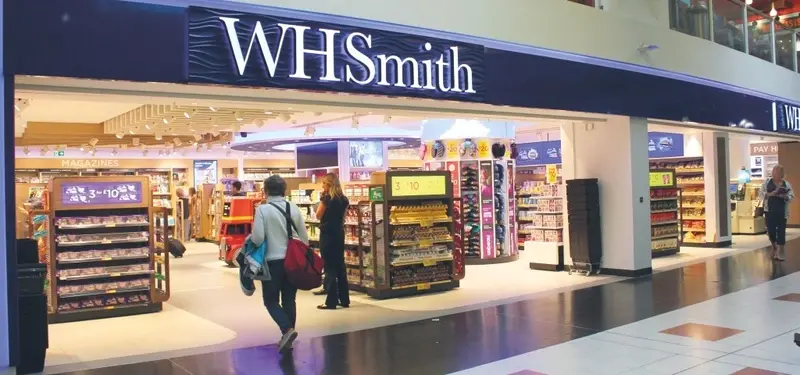
Books, magazines and snacks seller WH Smith (SMWH) has become the latest corporate victim of the coronavirus pandemic, warning Covid-19’s effects will crimp second half sales and profit in its travel business, the growth engine for the group.
Shares in the cash-generative retailer, whose long-run bull case has centred around the opening international airport stores, fell 13% to £13.83 on a warning as much as £40m could be swiped from annual profits amid the coronavirus’ chilling global spread.
HARD YARDS AHEAD
Although WH Smith is confident first half profits will meet market estimates, for the year ending 31 August 2020, it now foresees a Covid-19-related adverse impact of between £100m and £130m on sales, as well as an estimated £30m-to-£40m hit to profit before tax.
Over the last fortnight, the retailer has started to see a ‘material reduction’ in passenger numbers at airports in the UK, in Europe and in the US, a situation that will only worsen in the wake of Donald Trump’s 30-day European travel ban.
Dwindling passenger numbers in the Western world follows on from the slump in passenger footfall seen in Asia Pacific since February.
ACUTE PAIN
The coronavirus outbreak is particularly acute for WH Smith, which over the past decade or more, has successfully pivoted away from the struggling UK high street to drive all of its sales and earnings growth from airports and train stations.
Last year’s transformational takeover of US travel retailer Marshall, which dovetailed with the earlier acquisition of InMotion, roughly doubled the size of WH Smith’s international travel business.
BATTENING DOWN THE HATCHES
While WH Smith is slashing costs and taking other measures to protect profitability, but it predicts the effects of Covid-19 will lead to a challenging third quarter with ‘a modest normalisation in the fourth quarter’.
The coronavirus has yet to impact the high street division in any significant way although management, led by new chief executive Carl Cowling, does recognise ‘that Covid-19 could result in reduced high street footfall’.
Seeking to soothe investors’ concerns, Cowling and the board stressed the retailer ‘is a resilient business with a strong balance sheet, substantial cash liquidity and strong cashflow’, while also adding WH Smith has ‘a strong management team in place and has consistently demonstrated that it can adapt and respond quickly to changing market conditions.’
Over the longer term, the board remains ‘confident in the strategy and believes the group is well positioned to benefit from the normalisation and growth of the global travel market.’







